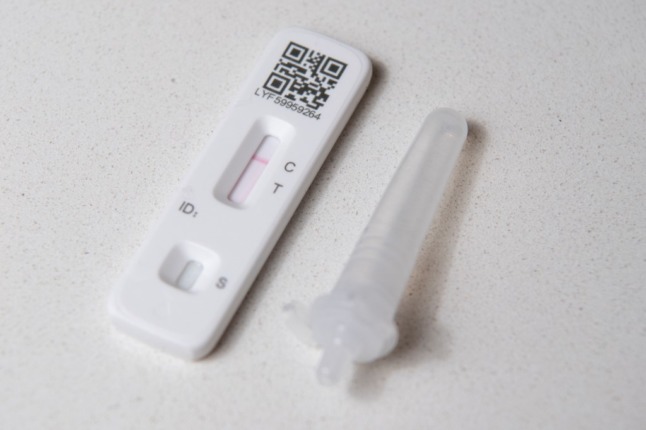We are planning to arrive in UK on a Thursday, and come back to France on the Sunday. If we do the Day 2 test, as usual, can that double for the test one needs 48 hours before travelling back?
People travelling from France to the UK must book a Covid test (PCR) from a certified test provider on or before Day 2 of their arrival. The UK has also re-introduced the need for pre-departure tests for all travellers whether vaccinated or not.
Meanwhile, all travellers over the age of 12 going from the UK to France must present a negative antigen or PCR test, whether vaccinated or not, to enter the country. This rule also apples to foreign residents of France and French citizens. All travellers to France face a seven day quarantine upon arrival – although this can be cut short if they test negative after 48 hours.
The tests can be a PCR test and can be self-administered – as long as the results have been confirmed by a lab.
So for a short trip, it would certainly be convenient if the UK “Day 2 test” could double up as the pre-departure test needed to return to France.
READ MORE Should I cancel my trip between France and the UK this Christmas?
Unfortunately, it probably won’t work that way.
Generally Day 2 test providers send their results by email. These results are normally a couple of lines of text rather than a formal certificate that travel companies and border police like to verify. The French Consulate in London have said that if you are counting on using a Day 2 test to return to France, you should check with the test provider that they provide a result certificate which is valid for travel.
Petite question pendant que vous êtes là. Arrivant le vendredi à Londres et repartant le dimanche. Dois-je faire un test en arrivant (le fameux Day2 avec isolement) puis un autre test pour le retour le dimanche en France ? Ou bien le test Day 2 est valide pour le retour ?
— Robin.C (@C_Ruuben) December 14, 2021
Unfortunately, the complications don’t stop there. The PCR or antigen tests needed to travel to France must be taken within 24 hours of departure time.
READ MORE France warns it could impose tougher Covid rules on travellers from UK
On top of this, many readers report significant delays when it comes to receiving results on time. One option to get around this would be to use an express testing service, available at some UK airports, immediately upon your arrival. Results are typically processed in about three hours and can cost in the region of €100. If you opt for this solution, remember that you need to check with the test provider that they will provide you with a certificate which is valid for travel to France.
Your safest option may be to simply book a fit-to-fly test separately from your Day 2 test.
Covid travel rules between France and the UK are susceptible to change at very short notice.
Remember that you must have an essential reason for travelling to France. Tourists and people coming to visit their second homes are currently prohibited from entering the country. If you don’t have French nationality or residency, you will likely not be allowed into the country.



 Please whitelist us to continue reading.
Please whitelist us to continue reading.
Member comments